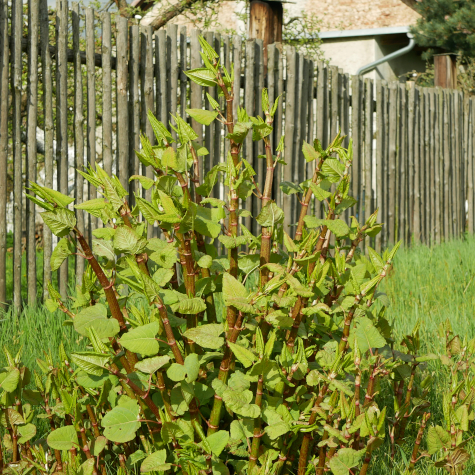In the world of real estate, there are few green monsters as notorious as Japanese knotweed. This invasive plant first made its way to Britain in the 19th century, touted as a decorative garden plant. Little did anyone know the lasting effect it would have on the property market and real estate law.
Characterised by bamboo-like stems and relentless growth, Japanese knotweed is a formidable adversary. During the winter months, it retreats to ground level, only to emerge again in the spring, reaching towering heights by summer. Its deeply entrenched rhizomes make it difficult to eradicate, with manual removal and chemical treatments often proving futile.
Japanese knotweed doesn’t just compete with native vegetation; it can also wreak havoc on structures and infrastructure. Its roots exploit weaknesses in masonry, exerting pressure on walls and blocking drains and pipes, leading to costly repairs and potential liabilities for property owners. As such, UK legislation makes it illegal to cause its growth or allow its spread.
Due to a combination of damage, legislation and media sensationalism, the presence of Japanese knotweed can significantly slow down house sales, or stop them altogether. Lenders are often hesitant to finance such properties, and negotiations can quickly become complicated. Sellers may find themselves forced to lower their asking prices, while buyers face the prospect of shouldering the costs of remediation efforts.
As a result, surveyor’s reports mentioning knotweed can significantly diminish a property’s market value, leading to prolonged periods on the market and reduced selling prices. Studies have shown that homes with knotweed infestations could sell for 10-20% less than their knotweed-free counterparts.
However, a Japanese knotweed infestation isn’t necessarily the kiss of death for property transactions that media reports make it out to be. By understanding the risks, gaining thorough reports from professional surveyors and implementing effective mitigation strategies, property professionals can navigate the complexities of knotweed-infested properties.
Ongoing collaboration between experts in knotweed management and real estate legislation is key to devising sustainable solutions that protect stakeholders’ interests while ensuring compliance with regulatory requirements and protection of properties from further damage.
If you’re eager to learn more about Japanese knotweed and its implications for property professionals, you can explore our comprehensive report on the subject. Discover more about this notorious species, so you can tackle its challenges head on.
Read the article

